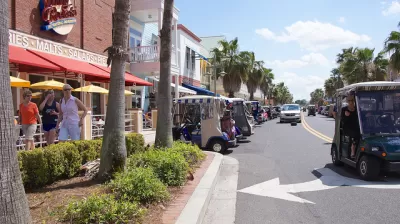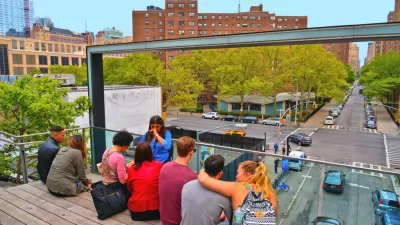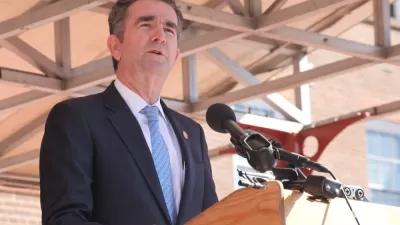With the high cost of land and housing in most major cities, why don't we just make the hundreds of "walkable" small towns in the United States more desirable places to live for average earners?

Forgive me if, after living in a small town for seven years, I have forgotten exactly what “walkable urbanism” means.
I walk every day on the sidewalks in my town of 1,500 people. Sometimes I’m just walking for recreation, and other times I want to get to the convenience store, post office, or one of several restaurants. It’s more of a bicycle trip to reach the grocery or drug store one mile away, but these destinations are also walkable.
But being a 40-minutes drive from the nearest city and an hour from the state capital, my small town surely doesn’t qualify as “urban.” Not by the definition used in the recent Urban Land Institute report, Housing in the Evolving American Suburb, which assumes walkable urbanism takes place mainly in or near the downtown of a major city.
The report further asserts that the dream of walkable urbanism can only be achieved by living in a tiny house or an apartment, given the high price of land and housing in these areas. If a young person or couple wants an affordable single-family home with a yard, they will have to settle for living in a fringe suburban setting, removed from commercial and civic amenities, and even access to sidewalks.
“... 'Walkable urbanism' has become somewhat of a luxury good that many households will not be able to afford … for many households the opportunity to walk to stores and restaurants will probably lose out to even higher priorities,” the report states.
I have observed walkable urbanism created out of nothing recently in some semi-rural areas here in Virginia such as Old Trail, a development west of Charlottesville, a metro of about 150,000 people; or in Spotsylvania Courthouse, 12 miles from the city of Fredericksburg. But these new neighborhoods are not really affordable to average working people. I suppose their developers are able to include walkability and a mix of commercial uses because there is significant demand in those locations from middle-class buyers.
But if true affordability can’t be achieved in these from-scratch places, why not build more around towns like mine? Many people who live in my town commute to Charlottesville or Richmond for work and specialty shopping, but their basic needs can still be fulfilled within a very short drive, or even by foot or pedal.
Well, there are at least two big problems with my proposal:
FULL STORY: How About Walkable “Small Town-ism?”

Alabama: Trump Terminates Settlements for Black Communities Harmed By Raw Sewage
Trump deemed the landmark civil rights agreement “illegal DEI and environmental justice policy.”

Study: Maui’s Plan to Convert Vacation Rentals to Long-Term Housing Could Cause Nearly $1 Billion Economic Loss
The plan would reduce visitor accommodation by 25% resulting in 1,900 jobs lost.

Planetizen Federal Action Tracker
A weekly monitor of how Trump’s orders and actions are impacting planners and planning in America.

Restoring Northern India’s Himalayan ‘Water Temples’
Thousands of centuries-old buildings protect the region’s natural springs and serve as community wells and gathering places.

Milwaukee to Double Bike Share Stations
Bublr Bikes, one of the nation’s most successful, will add 500 new e-bikes to its system.

DC Extends Application Window for Outdoor Dining Permits
District restaurants will have until the end of November to apply, but businesses with permits in rush hour parking lanes must end operations on July 31.
Urban Design for Planners 1: Software Tools
This six-course series explores essential urban design concepts using open source software and equips planners with the tools they need to participate fully in the urban design process.
Planning for Universal Design
Learn the tools for implementing Universal Design in planning regulations.
Caltrans
Smith Gee Studio
Institute for Housing and Urban Development Studies (IHS)
City of Grandview
Harvard GSD Executive Education
Toledo-Lucas County Plan Commissions
Salt Lake City
NYU Wagner Graduate School of Public Service




























